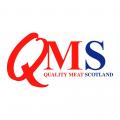
IN our fist vet column of 2021, we hear from Rhona Anderson from Forth Valley Vets in the Central Belt who highlights the importance of flock health planning and disease prevention
As the pandemic turns another corner and the country undertakes a national vaccination campaign, health planning has never been such main news. The last-minute Brexit deal at least gives some level of stability for the farming sector but despite the uncertainty facing future trade logistics, policy and support, it is important to remember that we are still in control of flock planning, health and welfare, and these will only become more important in the coming months. With the hard work ahead in the spring, the winter months are a great time to take a pause, consider the previous year and focus on improvements that can be made.
For many vets, sheep are only seen from March till May for the classic ‘fire-fighting’ medicine. Here at Forth Valley Vets in the Central Belt, we are getting more involved in active flock health planning and disease prevention. A health plan is usually seen as a document created by your vet that goes in a drawer to gather dust, but it really does serve a purpose as a working document all year round. By considering what diseases and challenges are present on your farm and using your vets’ recommendations, we aim to prepare you for any and all eventualities. Flock health record keeping is usually minimal, but in recent years the veterinary profession has been actively trying to encourage sheep farmers to keep good records in order to monitor performance. Performance records are a key component of the plan. Lamb losses are both frustrating and financially detrimental. With good record keeping you can determine when your most significant losses occurred; scanning to lambing, during lambing time, lambing to weaning, or finishing lambs. This allows a more structured plan to help you reduce these losses.
Flock health planning should be completed with your veterinary surgeon and tailored to your farm individually. A health plan wall-calendar allows you to see month by month what diseases to be on the lookout for, what planned treatments or medications are due, and what management practices should be completed each month.
Following the trend in cattle, prevention and screening for disease has also become more popular in the sheep industry. Vast improvements have been made in the screening for diseases such as Jaagsietke (Ovine Pulmonary Adenocarcinoma), a contagious fatal lung condition that can be diagnosed via ultrasound scanning, and psoroptic mange (sheep scab). A blood test to screen for sheep scab has become available in the last two years, allowing for more targeted parasite control in previously undiagnosed flocks.
Reducing antibiotic usage is not only important in improving profit margins and reducing financial losses but is paramount in the fight against antimicrobial resistance. Many of the diseases in sheep that provoke a high usage of antimicrobials (eg. Foot rot, joint ill) are preventable. Despite popular belief, this does not always mean expensive vaccinations programmes, and in fact many vets promote improving farm management practices before adding in a vaccine programme to ensure optimum results. Engage with your vet on these matters and you may be pleasantly surprised what you can improve without spending a fortune.
With a to-do list as long as your arm, and never seemingly getting any shorter, it’s easy to put off getting a health plan completed with your vet. If nothing else, it gives you a good excuse to spend some time in the office and out of the cold and wet!
The QMS Cattle and Sheep Assurance Scheme standards were updated in March 2020. One of the key changes relates to a previous recommendation that farms receive an annual veterinary visit and that the yearly review of the Animal Health Plan is signed off by a vet. This is now an official requirement, initially the changes to the Health Plan were to be phased in over a 12-month period.
Kathryn Kerr, head of brands integrity at Quality Meat Scotland commented : “Due to the ongoing pandemic, QMS has granted a further extension to this dispensation. This means any member who receives an assessment over the next year, from 1st March 2022, will be advised that on their next visit they must have this completed.
“Members can continue to complete their health plans themselves or with an SQP. They may need some vet help in the more difficult areas and may require reassurance they are filling it out correctly. A health plan template for members can be found at https://www.qmscotland.co.uk/cattle-sheep-standards.”
Ms Kerr added: “Members can do this remotely should they wish to i.e. email a completed health plan over to their vet and the vet can review, sign and send back to them.
“To help smaller producers and crofters with this change, QMS will be running workshops in the islands when restrictions allow, which will give attendees guidance on how to complete a health plan. Local vets from the area will also be invited to attend and QMS will be encouraging crofters to come together collaboratively in the future, like they do when applying for group QMS memberships, to meet with the vet and spread their costs.”



Comments: Our rules
We want our comments to be a lively and valuable part of our community - a place where readers can debate and engage with the most important local issues. The ability to comment on our stories is a privilege, not a right, however, and that privilege may be withdrawn if it is abused or misused.
Please report any comments that break our rules.
Read the rules here